International experience and broadening one’s worldview are key elements of high-quality education, as confirmed once again by the student of the National University “Yuri Kondratyuk Poltava Polytechnic»”. Anastasiia Ivaninska, a student from group 204-NG of the Educational and Research Institute of Oil and Gas (speciality 185 “Oil and Gas Engineering and Technologies”), became one of the participants in the prestigious international grant program “Study Tours to Poland” (STP). Over ten days, from October 20 to October 30, 2025, in the Polish city of Przemyśl, Anastasiia had a unique opportunity to learn about the European education system, the principles of local self-governance, civic initiatives, and the cultural life of Poland, gaining rich and extremely valuable experience, which she eagerly shares:
“A significant event marked October for me: I had the honour of becoming a participant in the prestigious international grant program Study Tours to Poland (STP). This project aims to support proactive youth from Eastern Europe, opening doors to a deep understanding of the education system, local self-governance, public initiative dynamics, and the richness of Poland’s cultural landscape.
The geographical centre of my educational journey was the ancient city of Przemyśl, with trips to Krosno and Rzeszów. These days turned into a real treasure trove of knowledge – an intensive, intellectually stimulating, and immensely valuable experience that profoundly transformed my worldview and left an indelible mark on my consciousness.
The first day of the program began with an elegant morning introduction breakfast, which served as an ideal platform for presentations. Each participant had the opportunity not only to outline their academic areas and personal interests but also to represent their university proudly. From the very first hours, the space was filled with an atmosphere of genuine friendliness and enthusiasm, which immediately catalysed open dialogue and effective teamwork.
Following the successful introduction, we plunged into the historical depth of Przemyśl, visiting its dungeons – a unique architectural complex that preserves evidence of the city’s centuries-old history. Our path then led to the People’s House (Narodny Dim) – a majestic structure that became the key hub for most of our subsequent lectures, seminars, and meetings. This cultural treasure impressed not only with its powerful historical resonance but also with its harmonious combination of the past and the present, demonstrating an innovative approach to preserving and promoting national identity.
Our educational path began with an intensive module on inclusive language and intercultural sensitivity. Our focus was on the architecture of ethical dialogue, grounded in unwavering tolerance and deep respect for the multifaceted nature of cultural identities. Theoretical principles were harmoniously complemented by practical tasks that crystallised the key insight: language is not only a means of communication but also a powerful tool for fostering genuine mutual understanding among people.
The culmination was a critical dialogue with City Council member Liliana Kalinowska, who captivated us with her unwavering life stance and history – from participation in protest movements at a young age to consistent support for modern social initiatives. She generously shared her invaluable experience working in local self-governance, presenting mechanisms for effective interaction between authorities and citizens and highlighting the key role of non-governmental organisations in shaping Poland’s social landscape.
This meeting became a powerful catalyst for my civic consciousness. It strengthened my desire to participate in social life actively. It crystallised a deep conviction: the potential of every young person is a driving force capable of implementing systemic, positive change in their country.
The following days turned into an exciting research journey through other Polish cities. In Krosno, we were personally hosted by the City President, who detailed the architecture of local self-governance: from effective mechanisms for engaging citizens in the decision-making process and establishing communication with residents, to the successful implementation of youth programs and social initiatives. The Polish experience convincingly demonstrated how fruitful dialogue between authorities and society can be when grounded in mutual trust and transparency.
An extraordinary highlight was the excursion to the glass factory in Krosno. We observed the magic of material transformation – from a fiery melt to the creation of elegant decorative figures and dishes. A unique opportunity complemented this visual experience: we got a chance to personally touch the craft, trying to create an element of a glass product, which left an unforgettable impression.
In Rzeszów, we immersed ourselves in the academic environment by visiting the local university. There, we thoroughly familiarised ourselves with innovative educational programs, cutting-edge scientific laboratories, and the principles of student self-governance.
The opportunities for practical student training were awe-inspiring. High-tech simulation manikins are used in medical – special training models that mimic the full range of human physiological processes (from breathing and pulse to reactions and even crying). These technologies allow future medics to practice critical assistance skills in conditions as close to reality as possible, ensuring the highest level of professional preparation.
An integral part of the program was a series of sessions dedicated to strategic media literacy and the therapeutic power of art. The lecture block on disinformation covered the concepts of information manipulation and psychological operations in detail, arming us with tools for critical news analysis. This knowledge is critically important in the context of modern information warfare.
Art therapy opened a path to profound self-discovery. We created personal “self-discovery flowers”, where each petal symbolically reflected a key character trait or life value. For me, this process became an effective way to realise my strengths and crystallise my life priorities.
One of the most touching and emotional climaxes was the charity concert by the Ukrainian band “E.K.A.”, held at the People’s House. All collected funds were directed toward vital support for Ukrainian service members. Songs filled with unbreakable patriotism and sincere emotions created a powerful atmosphere of unity and mutual solidarity between Ukrainian and Polish youth.
The exhibition of children’s works, “Children from Captivity”, solemnly opened by the President of Przemyśl, left a deep impression. His penetrating speech, dedicated to the joint struggle, the power of compassion, and unwavering humanity, brought tears to the eyes of many attendees. It was a moment of deep emotional identification and realisation of the inseparable importance of mutual support between our peoples.
The “Study Tours to Poland” program became a significant experience for me. I not only gained new knowledge about the education system, civic activity, and cultural life in Poland, but also reevaluated my own role in the student community. By comparing student self-governance in Poland and Ukraine, I realised how crucial it is to value youth involvement and its impact on university life.
In addition to official and educational events, we had the opportunity to visit historical sites and communicate with active citizens, teachers, artists, and volunteers. Translation was provided throughout the trip, so communication was easy and open. The organisers demonstrated professionalism, and the participants showed sincerity, creativity, and a desire to develop.
For me, this project became an example of how international cooperation and mutual understanding among youth can create a shared space for development, dialogue, and peace. I am grateful for the opportunity to represent my university in such a prestigious program, and I am confident that the knowledge and inspiration gained will help me implement new ideas back in Ukraine!” – Anastasiia shares.
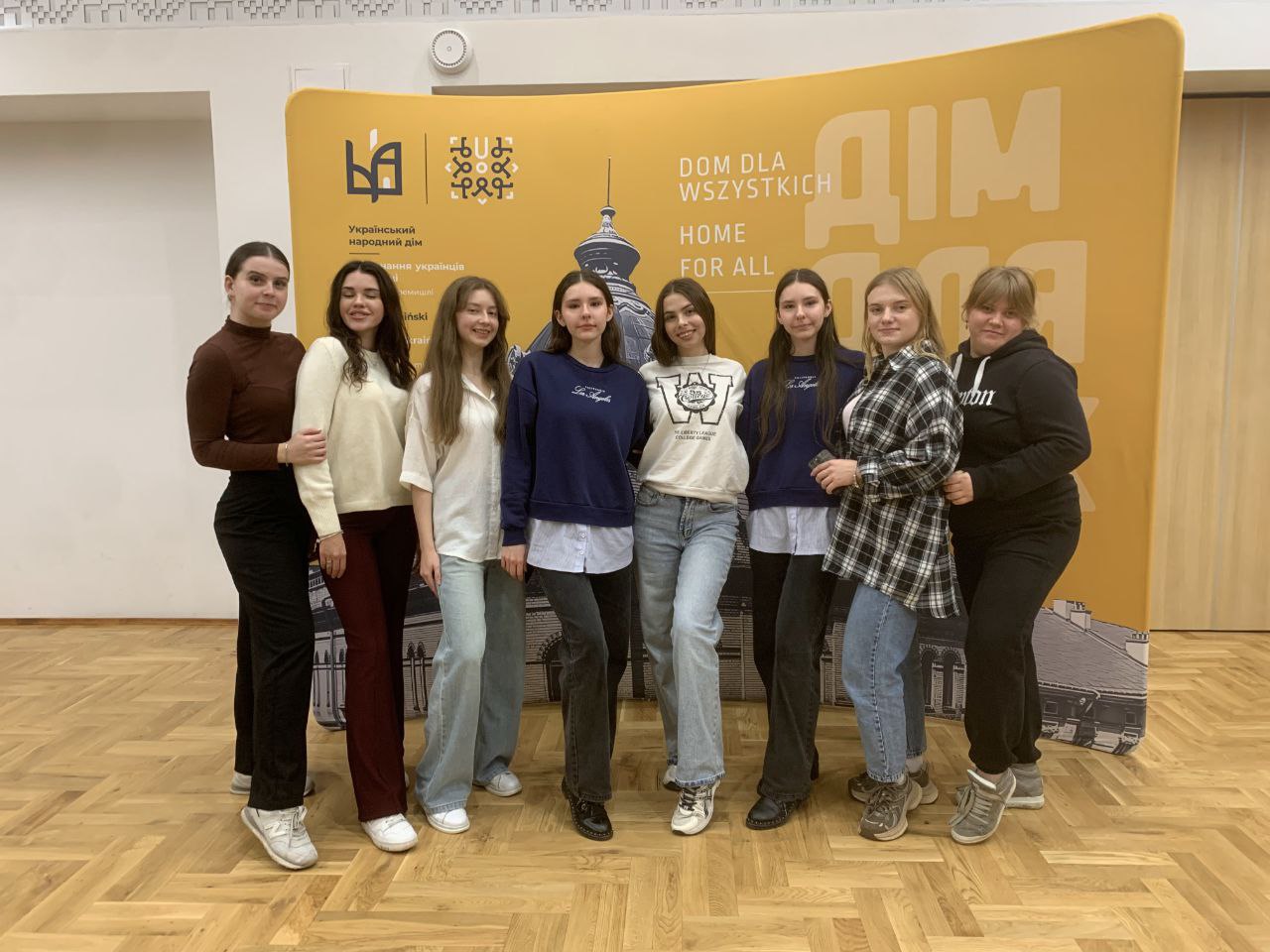
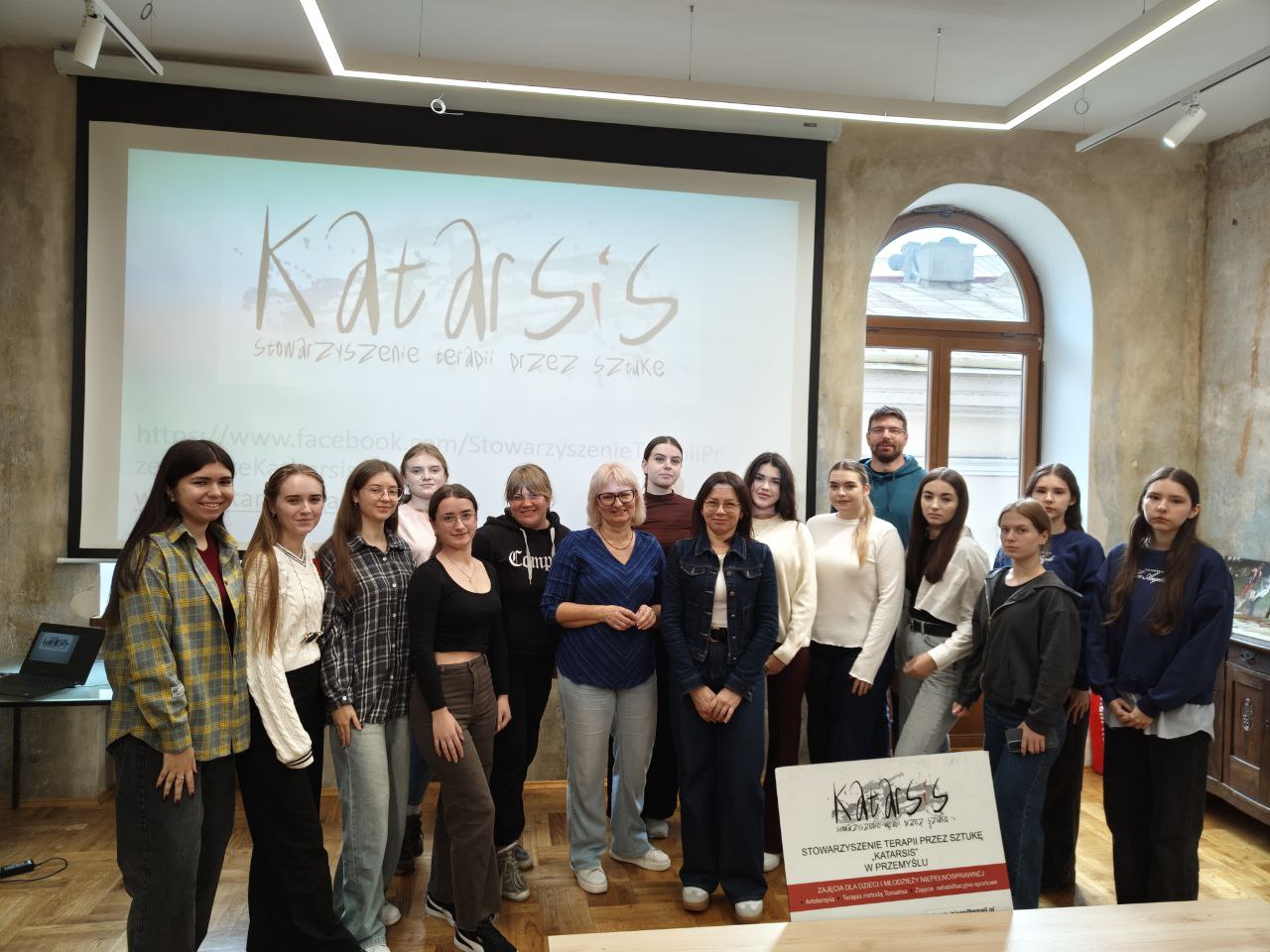
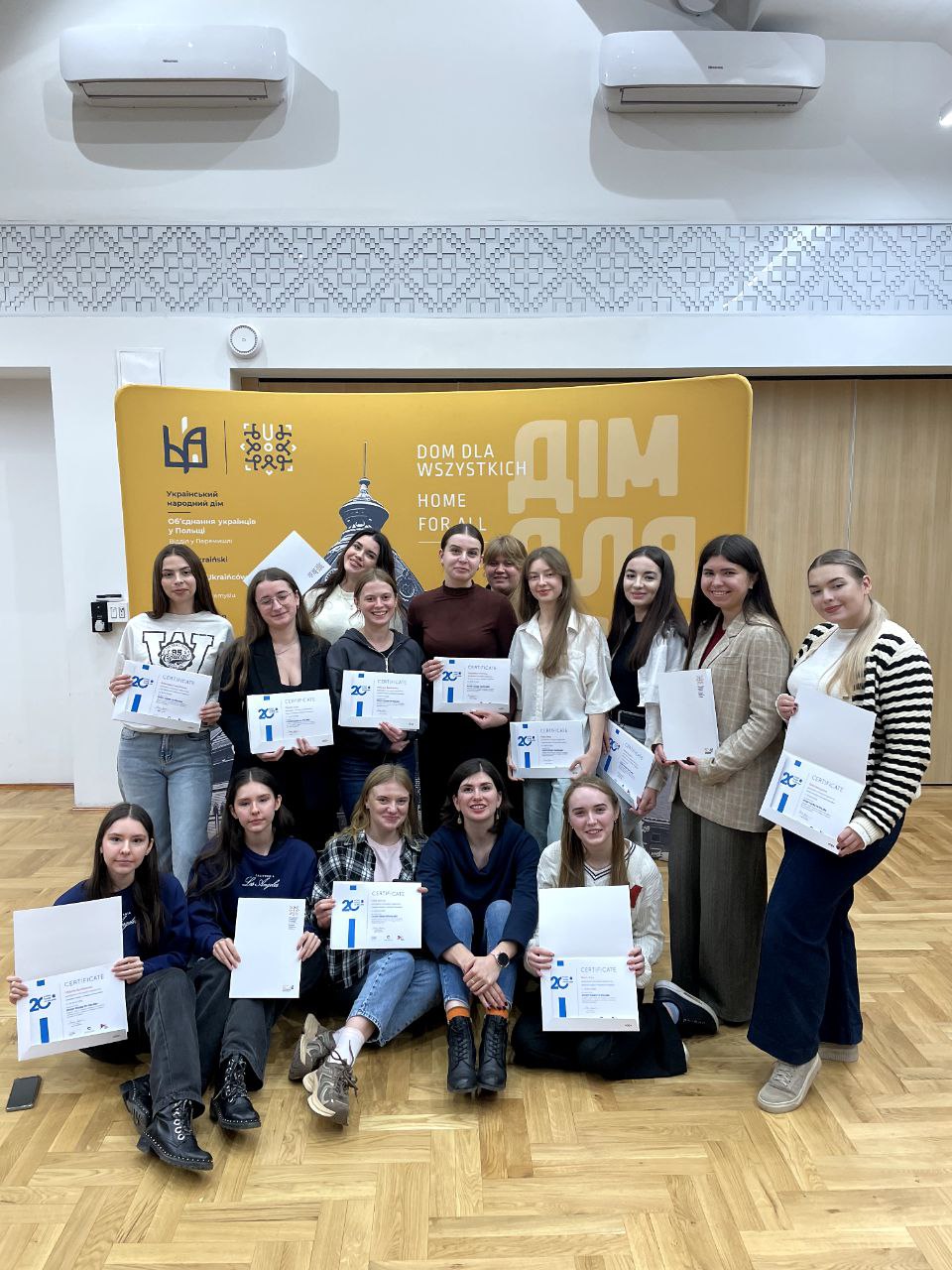



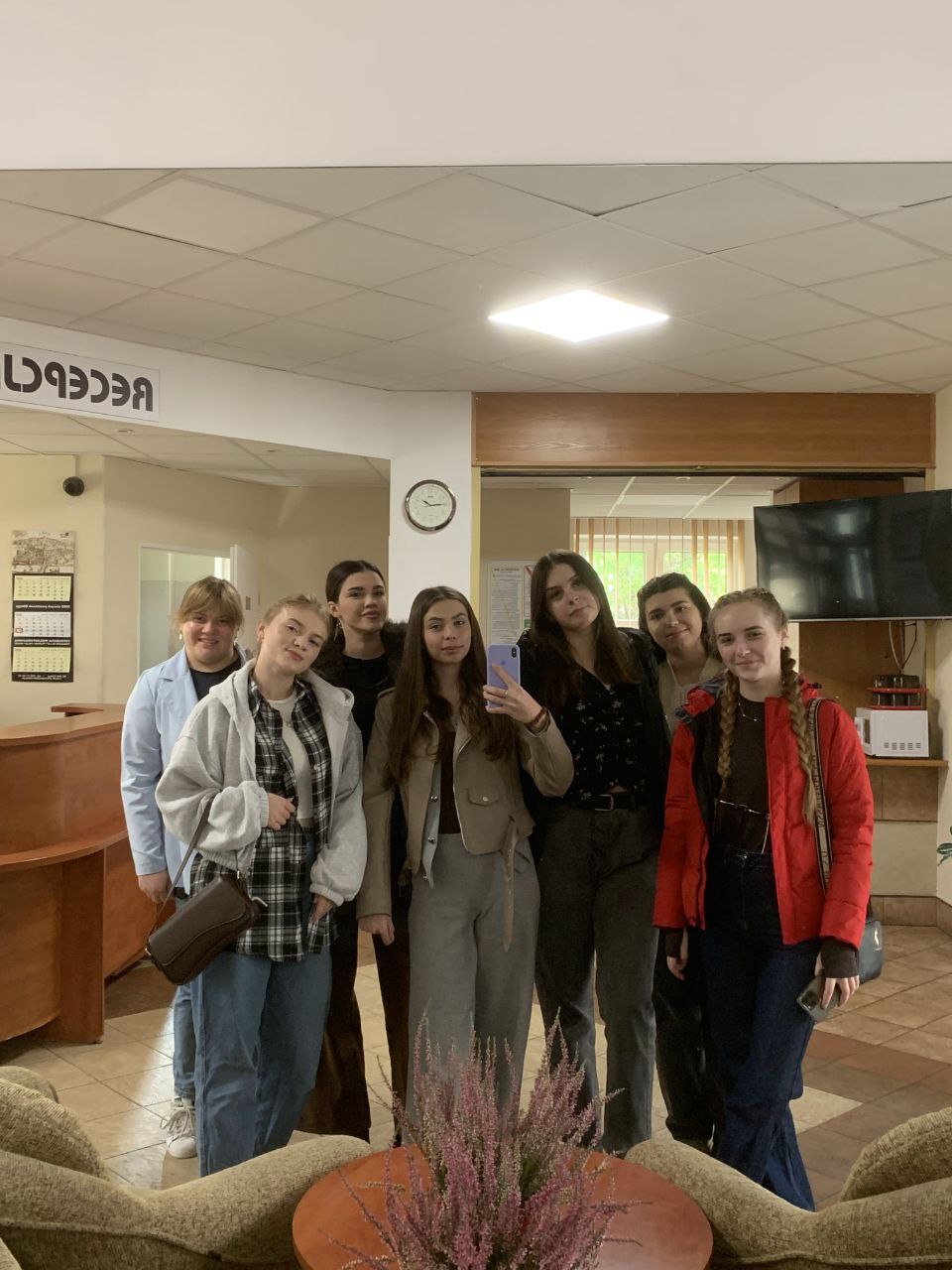
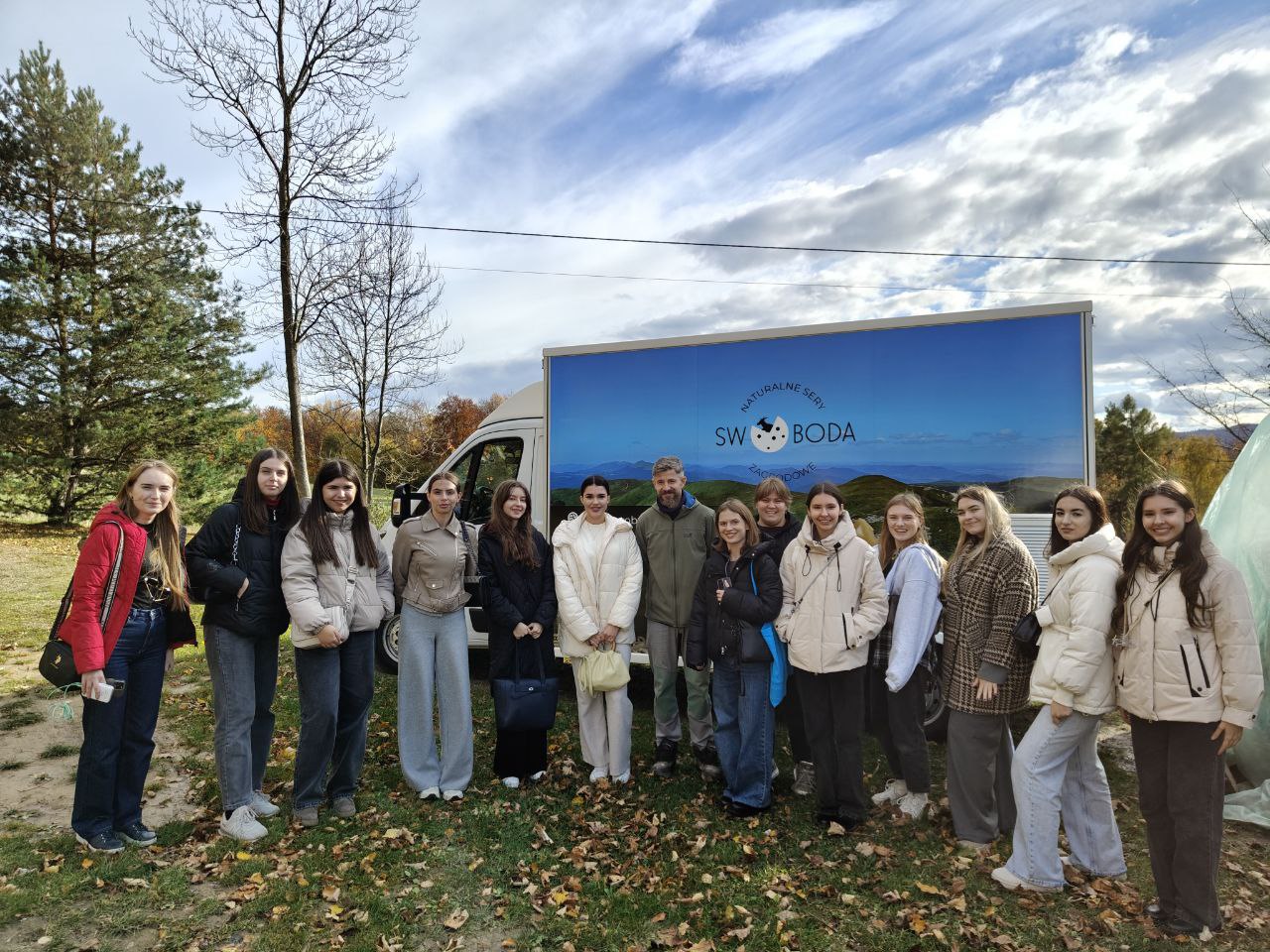
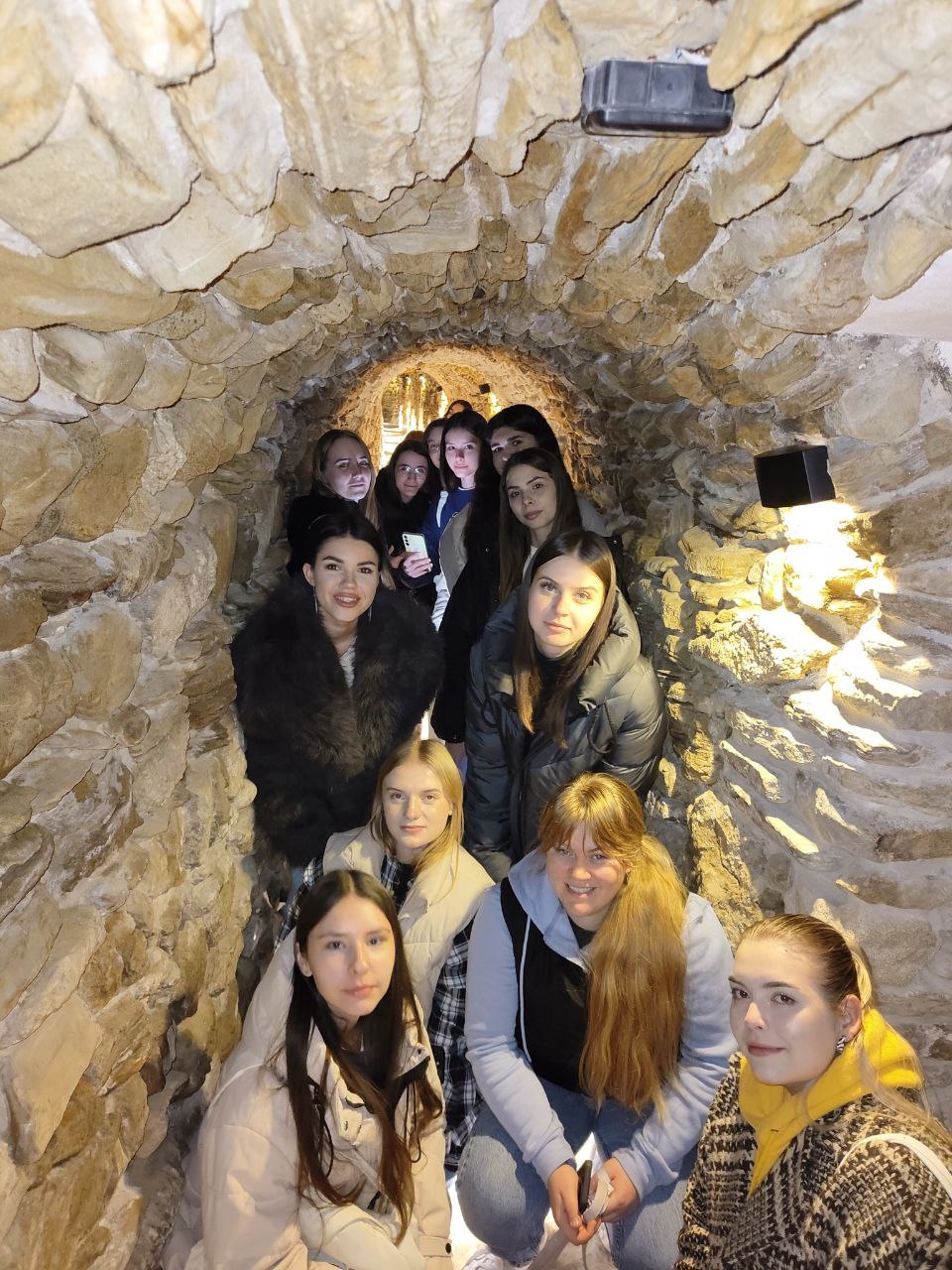
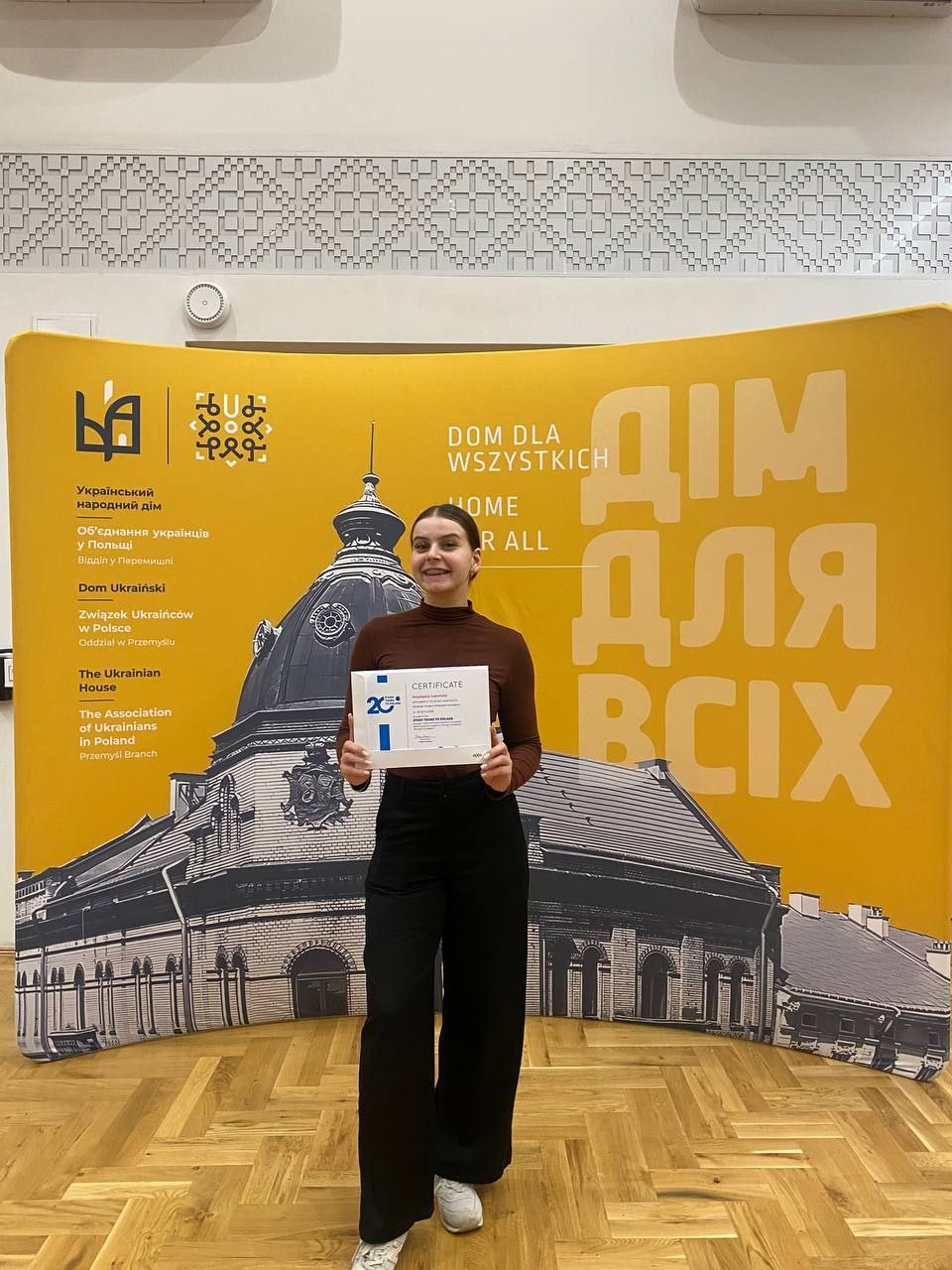
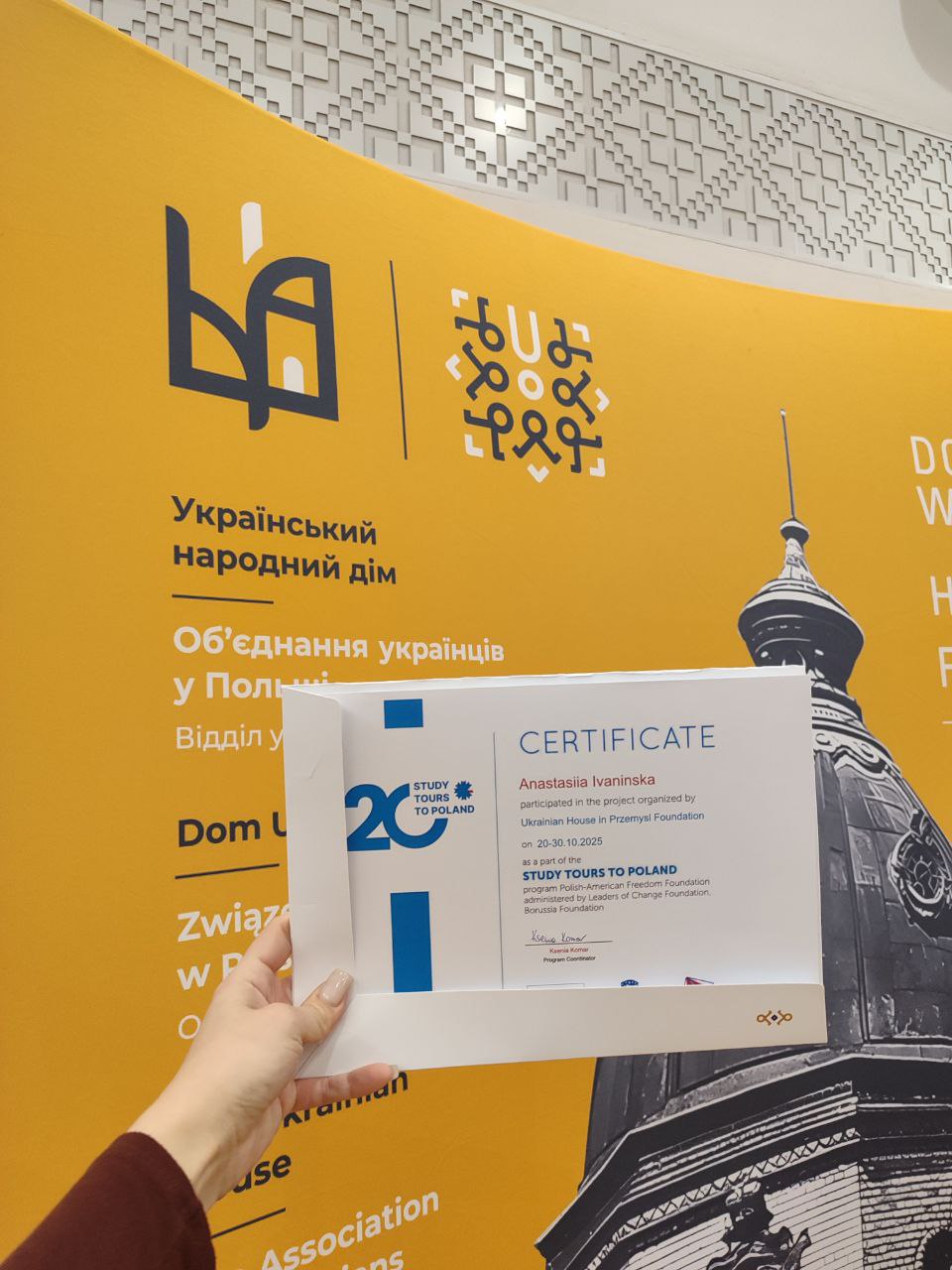
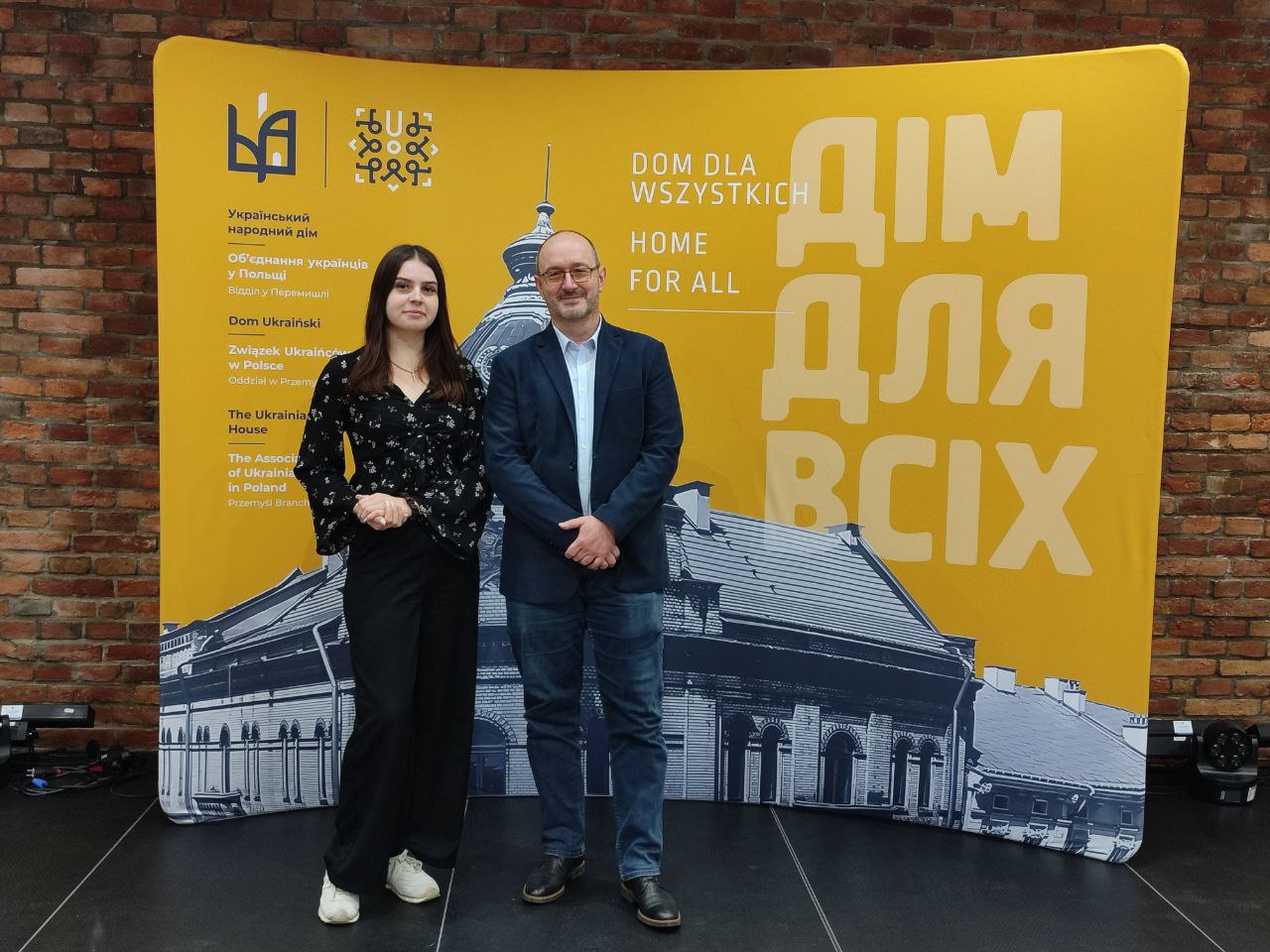
Previously, Poltava Polytechnic students participated in the “Study Tours to Poland” (STP) program in Łódź, Lublin and Kraków (2025), Bielsko-Biała, Toruń, Wrocław, Łódź, and Warsaw (2024), Wrocław, Gdańsk, and Toruń (2023).
Recently, Yulia Hunchenko, Senior Lecturer at the Department of General Linguistics and Foreign Languages, participated in the academic mobility program for lecturers at Transilvania University of Brașov. Poltava Polytechnic lecturers Liudmyla Svystun and Yuliia Khudolii participated in the E3UDRES2 scientific festival under the Erasmus+ academic mobility program for teaching staff at Vidzeme University of Applied Sciences (Latvia). Additionally, Viktoriia Boiko, a philology student at Poltava Polytechnic, participated in a 10-day Erasmus+ youth exchange in Armenia, where she learned to better understand herself and others through intercultural dialogue, forming valuable skills for the future. Students from the Educational and Research Institute of Finance, Economics, Management and Law also shared their impressions of studying at the University of Applied Sciences BFI Vienna and the University of Applied Sciences Burgenland (Austria).
As a reminder, faculty members of Poltava Polytechnic are eligible to participate in academic mobility and internship programs. Students can study abroad through Erasmus+ credit academic mobility grant programs for a semester or a full academic year at leading universities in Austria, Greenland, Denmark, Estonia, Finland, France, Germany, Greece, Ireland, Italy, Latvia, Lithuania, Luxembourg, the Netherlands, Norway, Poland, Portugal, Romania, Slovakia, Spain, Sweden, and the Czech Republic.
For more detailed information on current internship, teaching, and academic mobility programs abroad, please get in touch with the International Relations Office (office 213-C, interoffice@nupp.edu.ua) or the coordinator of international activities at the National University “Yuri Kondratyuk Poltava Polytechnic” – Anna Pavelieva, Ph.D. in Philology, Associate Professor of the Department of Germanic Philology and Translation (email: kunsite.zi@gmail.com, phone: +38-(095)-91-08-192).
Media Centre of
National University “Yuri Kondratyuk Poltava Polytechnic”



